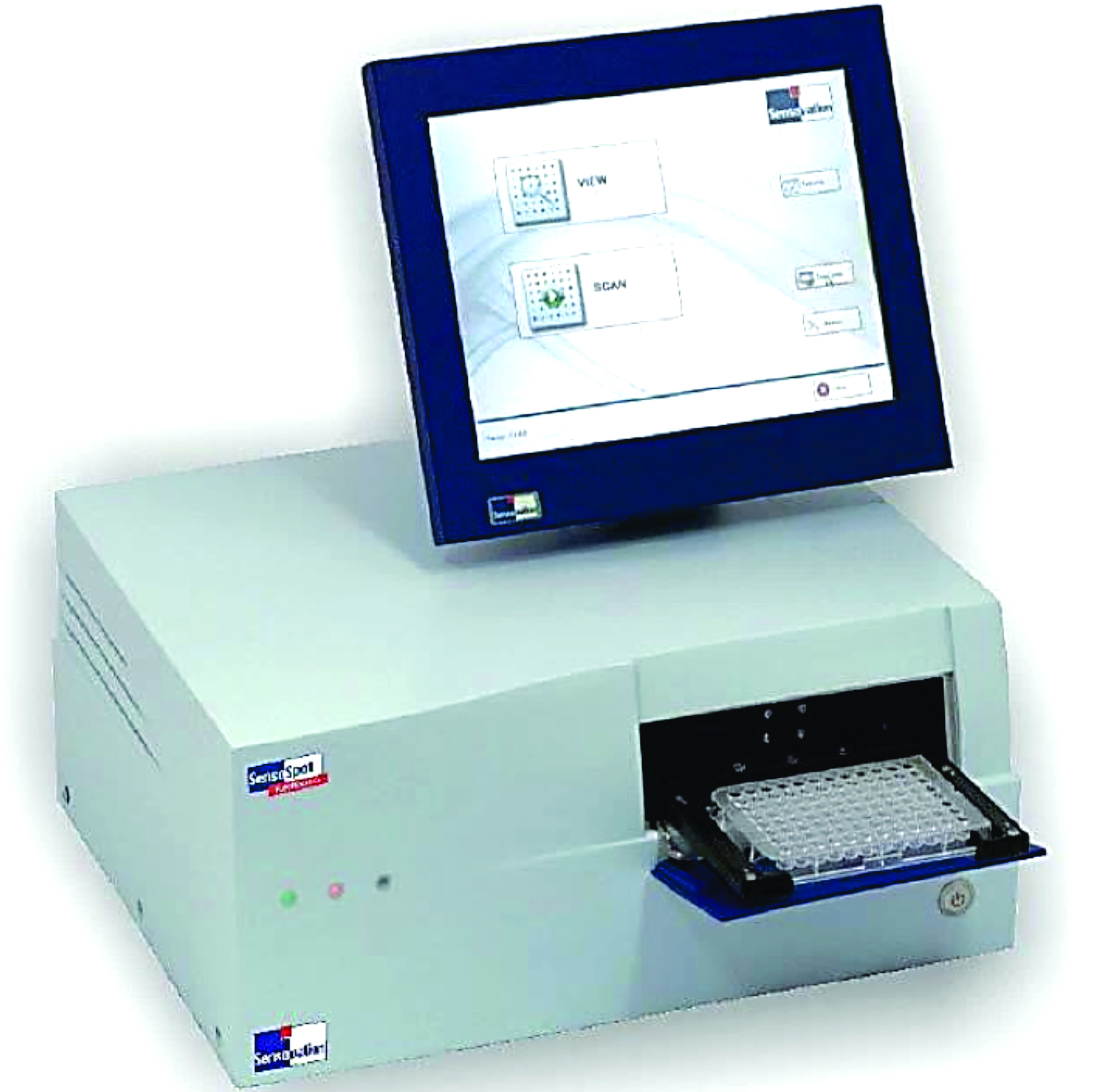Novel Multiplex Immunoassay Developed for Chagas Disease
By LabMedica International staff writers
Posted on 21 Apr 2016
Different tests are available for the diagnosis of Chagas disease in the clinic or for screening of blood donations. Direct detection of parasite Trypanosoma cruzi in the blood is performed by microscopy, hemoculture, xenodiagnoses, or detection of the parasite’s nucleic acids.Posted on 21 Apr 2016
These assays are highly specific but lack sensitivity in the chronic stage during which parasites load in the blood is reduced and therefore, diagnosis of T. cruzi infection is usually made indirectly by the detection of specific antibodies to T. cruzi antigens using enzyme-linked immunosorbent assays.

Image: The SensoSpot microarray analyzer (Photo courtesy of Sensovation).
Scientists from InfYnity Biomarkers (Lyon, France) working with their Brazilian colleagues tested 248 positive samples T. cruzi, 94 unscreened blood donors’ samples from non-endemic area, 49 seronegative blood donors, 7 false-positive and 3 doubtful samples. They designed a novel array of twelve antigens and printed these antigens onto 96-well plates using a sciFLEXARRAYER printing system (SCIENION; Berlin, Germany). Multi- cruzi Chagas ELISA assays were performed and each plate was imaged then analyzed using the SensoSpot Microarray Analyzers (Sensovation; Radolfzell, Germany).
Among the 200 cardiomyopathy samples, only 194 could be characterized as either negative (67%) or positive (33%) by polymerase chain reaction (PCR). Additionally, among the 48 screening-positive blood donors, 34 were PCR negative (71%) and 14 were PCR positive (29%). PCR techniques were different for both populations. The observed reactivities were analyzed to propose a decision-tree algorithm that correctly classifies all the samples, with the potential to discriminate false-positive results and sticky samples. The team observed that antibodies levels (Sum of all antigens) were significantly higher for PCR positive than for PCR negative samples in all studied groups with Multi-cruzi Chagas ELISA.
The authors concluded that the results described in their study indicate that the Multi-cruzi improves the serological confirmation of Chagas disease. Moreover, the “sum of all antigens” detected by Multi-cruzi could reflect parasitemia level in patients, similar to PCR signals, and could serve as an indicator of parasite clearance in longitudinal follow- ups. Validation of this assay is still required on an independent large collection of well-characterized samples including typical false-reactive samples such as Leishmaniasis. The study was published on April 1, 2016, in the journal Public Library of Science Neglected Tropical Diseases.
Related Links:
InfYnity Biomarkers
SCIENION
Sensovation













